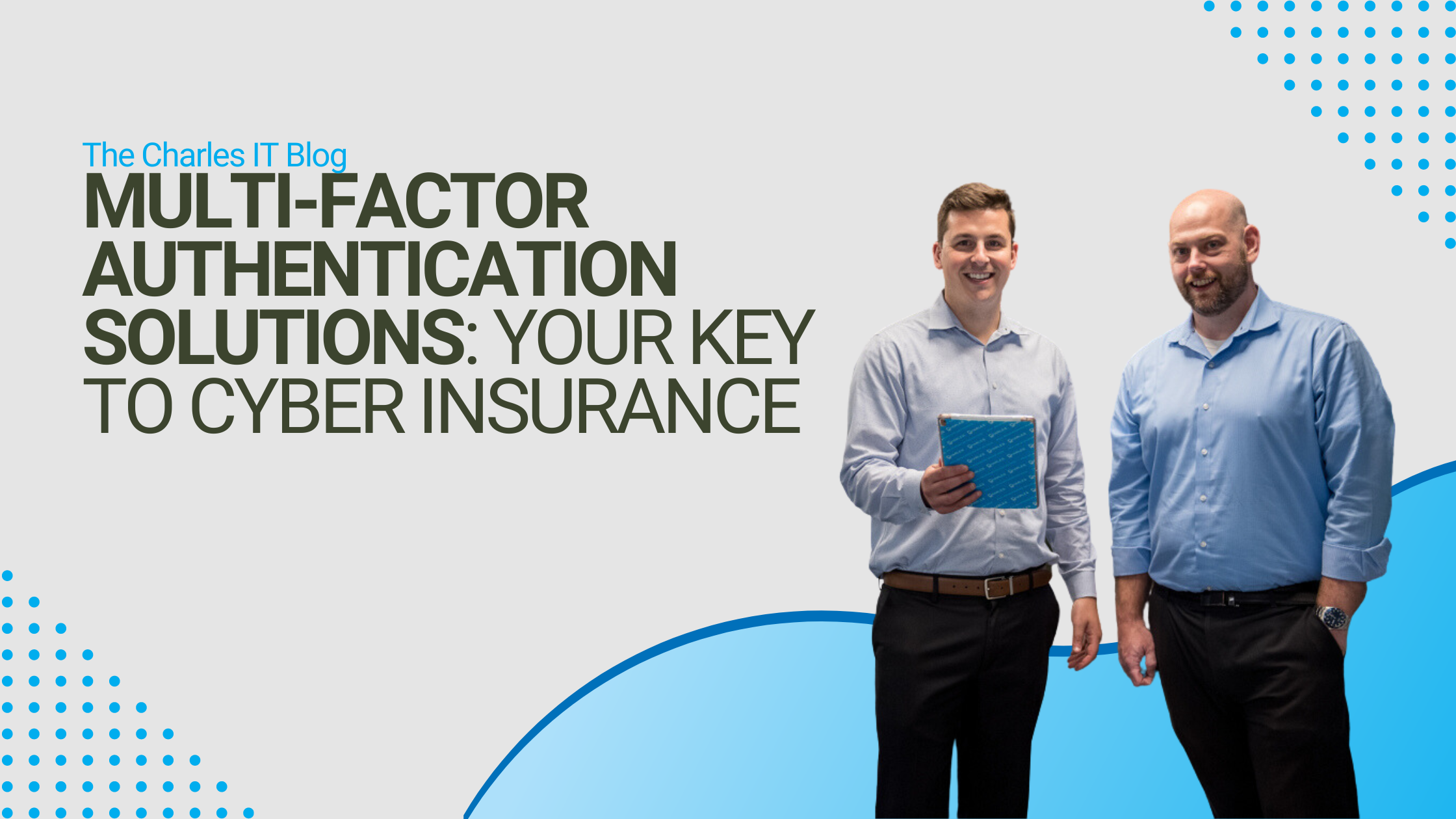
Are you having issues securing cyber insurance? If you’re like most business owners, you understand the growing dependence on technology and the potential risks that tag along.
Moving toward protecting your business from cyber lawsuits and hacks doesn’t come without hurdles. The key to overcoming these hurdles might lie within your IT security solutions.
Multi-factor authentication (MFA) might prevent your business from securing much-needed cyber insurance. Let’s go over common challenges business owners face in securing cyber insurance, the importance of coverage, and the role MFA plays.
Why is it Difficult to Secure Cyber Insurance?

If you already hold cyber insurance, you may have noticed updated terms and conditions in the past few months. Many carriers are changing their requirements for cyber insurance to minimize risks associated with poor internal controls.
The required internal control measures can vary by carrier, but most business owners are expected to beef up their IT security solutions. This might include introducing stricter warranty language around MFA, forcing executives to do their due diligence internally to ensure the application they’re signing is true and accurate, and enforcing more monitoring procedures.
their due diligence internally to ensure the application they’re signing is true and accurate, and enforcing more monitoring procedures.
This can make it difficult for small businesses to meet these new demands, especially with a limited budget. Not to mention the costs of ongoing maintenance required to maintain effective controls.
Why is Cyber Insurance Important?
Cyber insurance is essential for business owners trying to reduce risks surrounding data hacks and attacks. One of the top reasons unauthorized parties want to gain access to your system is to get paid. In fact, the average ransom payout in 2022 was $812,360. Could your business come up with that kind of cash?
surrounding data hacks and attacks. One of the top reasons unauthorized parties want to gain access to your system is to get paid. In fact, the average ransom payout in 2022 was $812,360. Could your business come up with that kind of cash?
That’s just the payout to regain access to your system. It doesn’t even begin to cover the damages your employees and customers could request. Cyber insurance alleviates a portion of the financial burden associated with cyber fraud, allowing your business to avoid bankruptcy.
How Does MFA Factor into Cyber Insurance?
MFA is now considered a core security control, eliminating the implementation option for businesses in every industry. MFA has been proven to protect businesses against phishing attempts, cyber threats, malware, and compromised applications. It makes sense that cyber insurers would want these controls in place.
Sometimes the requirement for MFA lies outside of your insurance carrier, with many regulatory bodies now requiring the implementation. Different industries, like finance, healthcare, and defense, have written multi-factor authentication requirements under guiding regulations.
Even if your business is required under legislation to implement MFA, it’s still a valuable component. Your organization can fortify its system, data, and customer information from unauthorized users. Wouldn’t it be nice to have a little more peace of mind?!
valuable component. Your organization can fortify its system, data, and customer information from unauthorized users. Wouldn’t it be nice to have a little more peace of mind?!
In Summary
Implementing multi-factor authentication best practices not only helps your business secure cyber insurance, but it can also reduce your risk of being the victim of a cyber attack. To go over how your business can put its best foot forward when applying for cyber insurance, reach out to schedule a call today!




